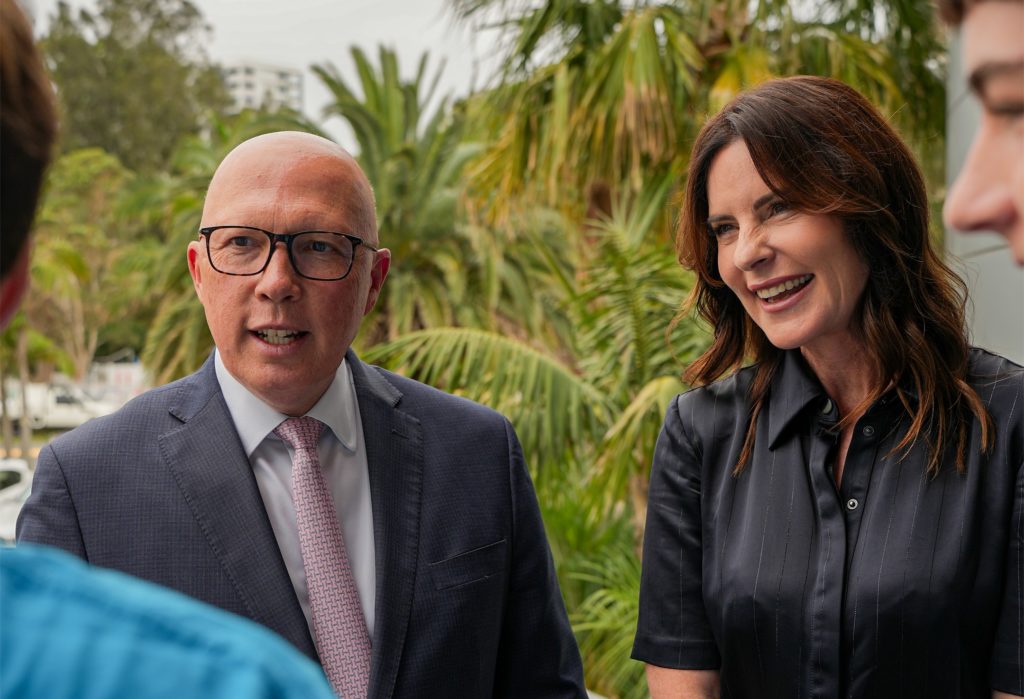The working from home issue is looming large as a major factor in the May 3 Federal election.
Opposition Leader Peter Dutton came out strong several weeks ago with the announcement that a LNP government would enforce full-time return to work for all federal employees.
Australians in both the public and private sectors, now attuned to a better life/work balance after several years of working from home initially introduced during the height of COVID-19 lockdowns, were alarmed.
Federal employees were loath to return to the office full-time and others were concerned an enforced return to work for federal employees would have a flow-on effect into the private sector.
Dutton admitted he “got it wrong” as he did a complete back-flip on April 7.
Admitting the party “made a mistake” in relation to the policy following immense backlash from voters, Dutton claimed Labor had “twisted” the original announcement into “something it wasn’t”.
Although Dutton claimed the return-to-work initiative was never intended to apply across the private sector, the Australian Council of Trade Unions (ACTU) says the back-flip does not mean that access to flexible work would be safe under a future Coalition government.

ACTU Secretary Sally McManus said Dutton voted against strengthened working from home rights introduced by the Labor Government in late 2022 and had continually implied that people working from home were not actually working.
She said legal advice from John Agius SC confirmed that taking work from home arrangements away from public sector workers could only happen through legislative change which would impact all Australian workers.
“Peter Dutton’s repeated comments questioning the work ethic of people who are working from their homes has been deeply offensive to the many hundreds of thousands of working people who have been doing so for some time,” McManus said.
“These arrangements have been a win-win and allowed families to better manage, saving both time and money, while having less tired and stressed workers delivering better work for employers.”
McManus said advantages to continued working from home included less congestion on roads and public transport as well as savings for workers on childcare, petrol and tolls.
She said any enforced return to work could impact up to one in three Australians.
One Central Coast resident who was alarmed by the original return-to-work announcement was Rebecca Segalla of Woongarrah, who is employed in the private sector by a company based at Surry Hills.
“When I returned to work after having my daughter we were just coming out of COVID lockdowns and I was engaged to work from home,” she said.
“Since then the conversation has shifted and there is a big push for workers to go back into offices.
“In my industry there is a push for a mandatory return to the office three-four times a week.
“Fortunately I have direct managers who understand the difficulties in commuting from the Central Coast as a single parent and I go in just once a week.”
“I am absolutely more productive when I work from home.”
Rebecca Segalla
“I consider myself lucky, but there is a lot of chatter (fuelled by Mr Dutton’s original announcement) about flow-on effects to the wider workforce.”
Segalla said the one day each week she went into the Surry Hills office comprised about five hours of travel time and five hours of actually working.
“I drive to work and first have to drop my three-year old to daycare,” she said.
“I usually leave home at around 7am and get into the office at around 10am.
“I leave the office at around 3pm to do the reverse trip and we are usually home by around 6pm.
“I spend half the working day commuting.
“Big businesses don’t realise what that means to parents, particularly mothers; it’s a huge strain.
“We have seen increased female participation since working from home was introduced.
“Financially, if I was asked to go into the office three days a week I simply couldn’t afford it.”
Segalla said she spent more than $100 each day she had to commute on fuel and road tolls, quite apart from daycare costs.
“I am absolutely more productive when I work from home,” she said.
“On those days I do go into the office I have to work at night when my daughter is in bed to make up lost time.”

Digital business service leader Teleperformance Australia says ABS data reveals that more than 80% of Aussies want to work from home.
Teleperformance Vice-President Gavin Shipman said remote workers needed really good communication skills.
“They also should be tech-savvy and able to work independently within a company’s systems and platforms,” he said.
“The big issue for companies considering remote workers is ensuring data security is safe and productivity remains high,” he adds.
He said rigorous data protection protocols enabled organisations to scale their remote teams efficiently without compromising security or quality.
Terry Collins



